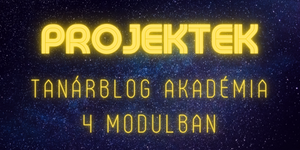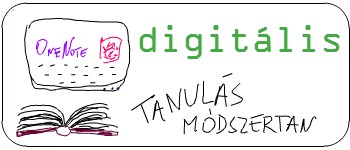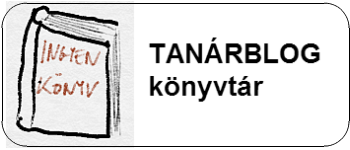Egy menekült élete - játék a tanórán
Nyelvoktatás - 2012. február 25.
 Az ENSZ készítette az Against all odds (ITT TALÁLHATÓ) című játékot, amelyben egy menekült bőrébe bújhatunk. Most jutottam hozzá, hogy több szinten, több csoportban is kipróbáljam a játékot, és azt kell mondanom, hogy megérte! Középfokon volt az egyik, picit jobb a másik csoportom, akikkel játszottuk. Amit csináltunk: bevezettük a játékot, megnéztük a rövid intro-t, majd mindenki (párban) a gép előtt ülve elkezdett játszani. Összesen 3 fő részben egyenként 4-4 kisebb feladatot (állomást) találunk (pl. a befogadó országban munkát találni, elmenekülni otthonról, megtanulni helyesen válaszolni a rendőrségen feltett kérdésekre). Ha az egyik feladat nem sikerül (pl. nem találunk ki a városból), az oldalt frissítve át lehet ugrani, és tovább lehet menni - ez volt az egyik legnagyobb előnye a játéknak. Mindeközben rengeteget kellett olvasniuk a gyerekeknek, állandóan döntéseket kellett (közösen) hozniuk, ráadásul sok olyan dologra csodálkoztak rá, amit azelőtt egyáltalán nem értettek, éreztek. Szintén pozitívum, hogy átlagos gépeken egyszerre 10 állomáson is gond nélkül futott a játék. Végül - házi feladatként - el kellett képzelniük, hogy mindez velük történt meg, és egy személyes beszámolót kellett írniuk. Megdöbbentően jók is lettek, arról nem is beszélve, hogy mennyit tanultak angolul. A lapozás után két 11. osztályos diák fogalmazása található, angolt tanítóknak (de csak angolul tudóknak is) érdekes olvasmány szerintem.
Az ENSZ készítette az Against all odds (ITT TALÁLHATÓ) című játékot, amelyben egy menekült bőrébe bújhatunk. Most jutottam hozzá, hogy több szinten, több csoportban is kipróbáljam a játékot, és azt kell mondanom, hogy megérte! Középfokon volt az egyik, picit jobb a másik csoportom, akikkel játszottuk. Amit csináltunk: bevezettük a játékot, megnéztük a rövid intro-t, majd mindenki (párban) a gép előtt ülve elkezdett játszani. Összesen 3 fő részben egyenként 4-4 kisebb feladatot (állomást) találunk (pl. a befogadó országban munkát találni, elmenekülni otthonról, megtanulni helyesen válaszolni a rendőrségen feltett kérdésekre). Ha az egyik feladat nem sikerül (pl. nem találunk ki a városból), az oldalt frissítve át lehet ugrani, és tovább lehet menni - ez volt az egyik legnagyobb előnye a játéknak. Mindeközben rengeteget kellett olvasniuk a gyerekeknek, állandóan döntéseket kellett (közösen) hozniuk, ráadásul sok olyan dologra csodálkoztak rá, amit azelőtt egyáltalán nem értettek, éreztek. Szintén pozitívum, hogy átlagos gépeken egyszerre 10 állomáson is gond nélkül futott a játék. Végül - házi feladatként - el kellett képzelniük, hogy mindez velük történt meg, és egy személyes beszámolót kellett írniuk. Megdöbbentően jók is lettek, arról nem is beszélve, hogy mennyit tanultak angolul. A lapozás után két 11. osztályos diák fogalmazása található, angolt tanítóknak (de csak angolul tudóknak is) érdekes olvasmány szerintem.
Ez első fogalmazásban a diák naplórészleteket írt:
Simon Andrea 11.c
Monday, April 8, somwhere on the Earth
It’s been dark times, there’s no deny... The military has taken power and is hunting down dissidents. They found me and dragged to a dreadful humid and cold prison cell where I had to respond to 10 statements. All of the statements ran against my opinion but I forced myself in order to get out of there. I assumed that if I answered the questions of the interrogators according to their taste, they would let me go. Fortunately I was right.
I arrived home full of fear. Entering my room I realized that I was shivering. I felt hammering in my head, my mind went blank. I grabbed my backpack and threw in the first three objects that I saw. I barely managed to avoid the men who came to fetch me.
Right now I’m in the middle of nowhere and have no idea what my next step will be. I tried to get on a boat but it was already full. Oh, I see a truck coming! Maybe I will be lucky enough to join the team of passengers.
Thursday, April 11, on the truck
I don’t know whether it is too early to thank God for being able to get on that truck or not...
It was a revelance for me to see some of my neighbours, friends and relatives standing beside the track and waiting for boarding. However, it turned out very fast that events are not moving on a smooth track. The truck was overloaded and I was given the choice to let 6 people get off before leaving. My heart was breaking for my neighbours but I had to let them down. I will probably never see them again, but this decision saved the life of the other 12 people.
The next choice seemed similarly cruel. I had to take leave of my best friend. He had lost his ID. The soldiers’ behavior is unpredictable and ill-intentioned. We simply could not risk the consequences of such a mistake. We left him on the road. I just hope that he will find a way out somehow.
Presently we are heading towards the safe harbour but we are far from feeling safe. Everybody is pale from fear and not able to utter one word. The driver is the only person who is able to keep his temper and do his job. This is a bit reassuring. Who knows what the future will bring us...
És most következzék a másik megoldás (200 szót kellett volna írni:)
Against all odds
I live in a country no one would ever want to live in. Last week I made a mistake telling this to my neighbour. It turned out that he was working for the Police and in no time I found myself in jail. I sat with a thug and a prostitute in a cell for a day, then I was brought to a room for questioning. They asked me to give up my beliefs, my religion and rights, and when I said no, they beat me with their guns. After that I signed everything, because I realise I didn’t have any choice, and I was released.
I went home quickly and started to pack my belongings because I knew they would be there for me straight away and this time they wouldn’t be so kind. I threw some warm clothes and a flashlight into my backpack and fled through the window just before the cops arrived.
I found myself in the dark town that had never seemed so threatening and dangerous to me before. I sneaked from wall to wall with my heart beating so fast it almost jumped out of my chest, but I managed to escape the town through a tunnel. I had four options to leave the country – but the escape was only viable with a grungy truck. The truck was overloaded, so we had to leave six people behind, they were my neighbours. You can’t trust anybody who’s not your relative or friend. Everything went smoothly until the borders where it turned out that my friend didn’t have the right papers. We had to part with him and with another friend of mine who got injured during the ride; but we managed to get to the border country.
I had to find a place to hide so I began seeking one. The prejudice and aversion the inhabitants had to me shocked me. In the end I spent the night at the church and in the morning I went to the refugee camp in the hope of finding a place where I can stay. No one spoke my language so I had to find an interpreter which turned out to be a harder task than I’ve expected it to be. I searched the whole building but when I found him he was heart-warmingly kind to me and I was given a room in the refugee camp, small but tidy, perfect for someone like me.
The next day it was time to go to school. I was so nervous my stomach had the size of my fist and my knees were trembling. I barely understood what people were saying to me but somehow I managed to get into my classroom and even do a little speech introducing myself. My classmates were nice to me even though it was obvious that I was a refugee. It felt nice to work in a group of people who are more tolerant towards me.
After a few days I was in need of money so I decided to look for a job. After writing an impressive CV I was lucky enough to be called to a job interview. I wanted to impress them and look professional so I wore a suit and fought my accent in order to speak smoothly. They were quite fascinated by me and since then I work as a cleaner by the roller coasters. As I worked quite a long time, I finally had the money to buy a cell phone to call my family and friends. I went to a shopping centre I wasn’t familiar with and had to go from shop to shop in order to find the place where I can buy a phone. Again I was devastated by the prejudice and malevolence people had towards me but I knew I had to get used to this if I wanted to stay here.
I worked hard and I finally was able to rent an apartment of my own. It was small but it was mine. My neighbours were surprisingly welcome and I knew I’ll be fine. After a long and terrible journey I’ve finally found a place in the world where I could live according to my rules and beliefs without being punished for it.
Bráder Edina
- csoport
- flash
- felső tagozat
- játék
- felsőoktatás
- gimnázium
- történelem
- önálló tanulás
- edutainment
- videójáték
- EUrópa






